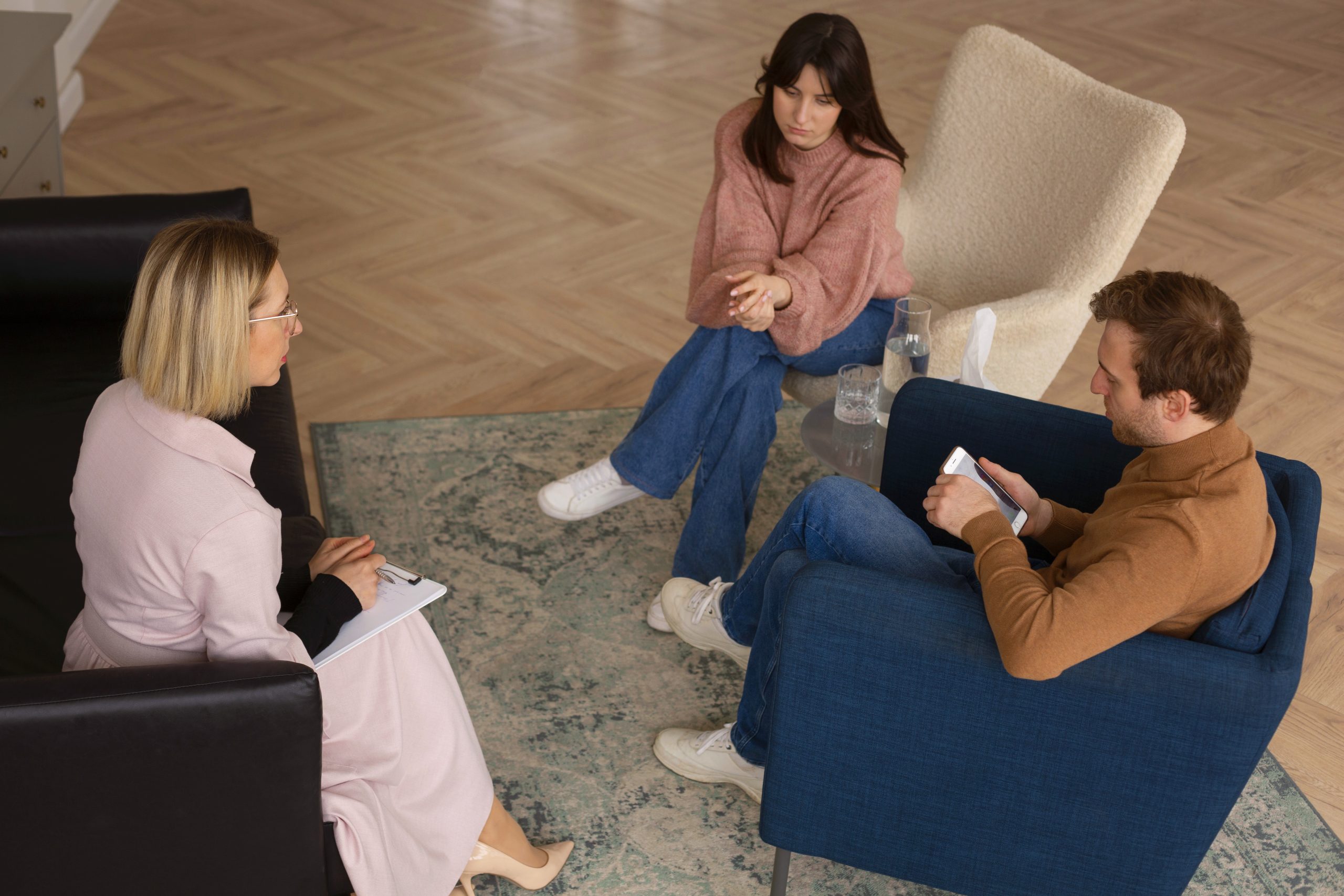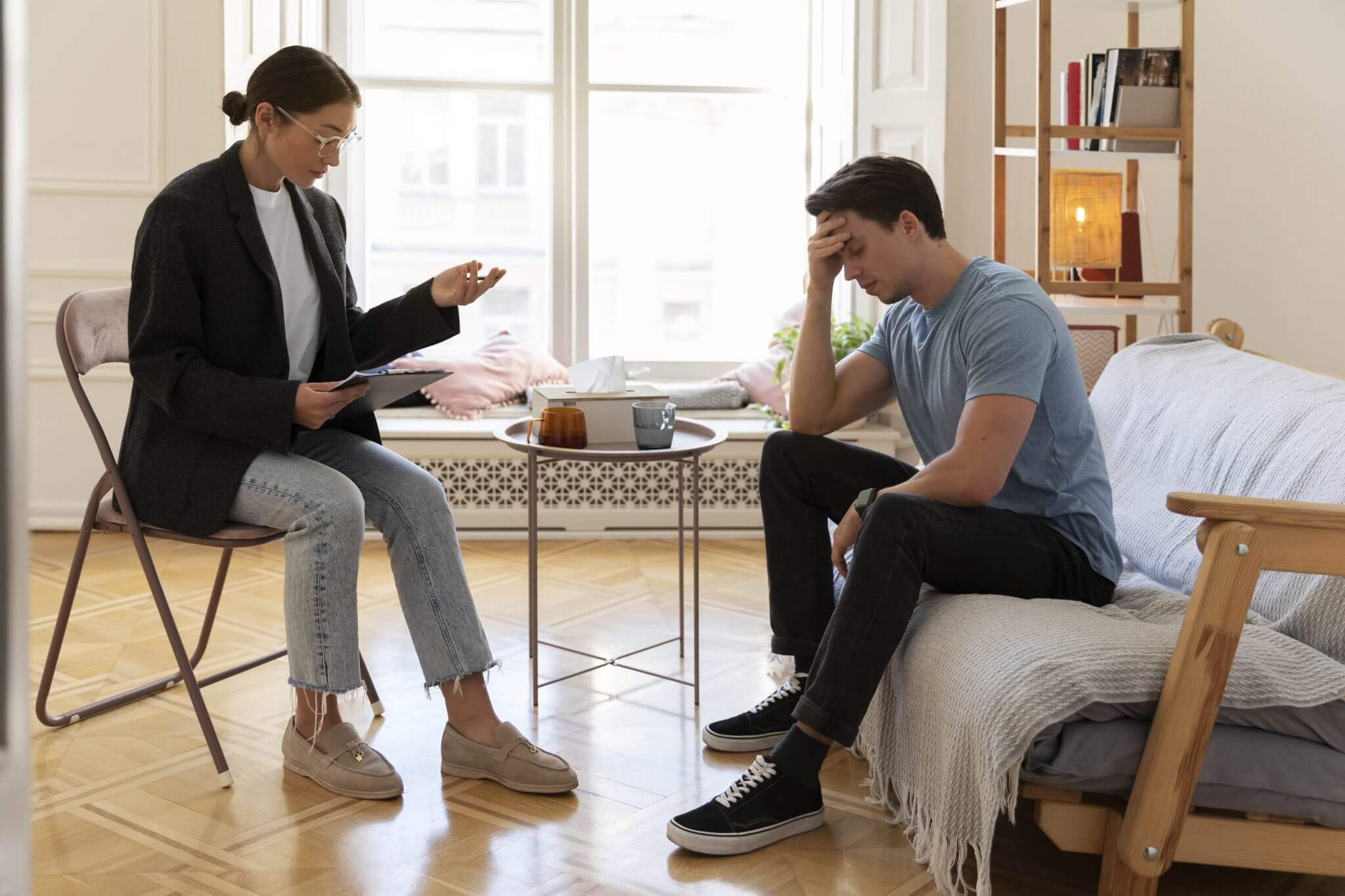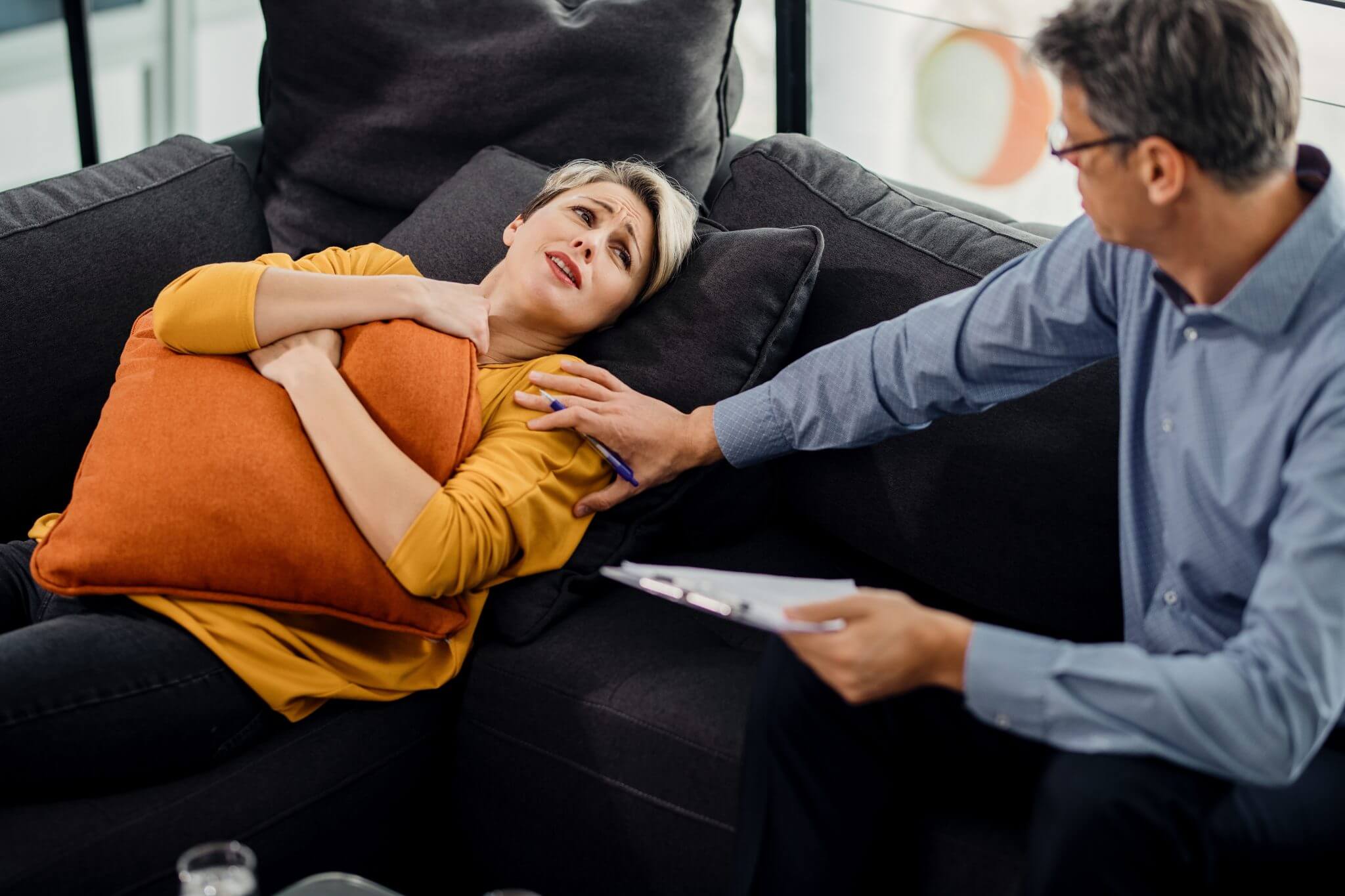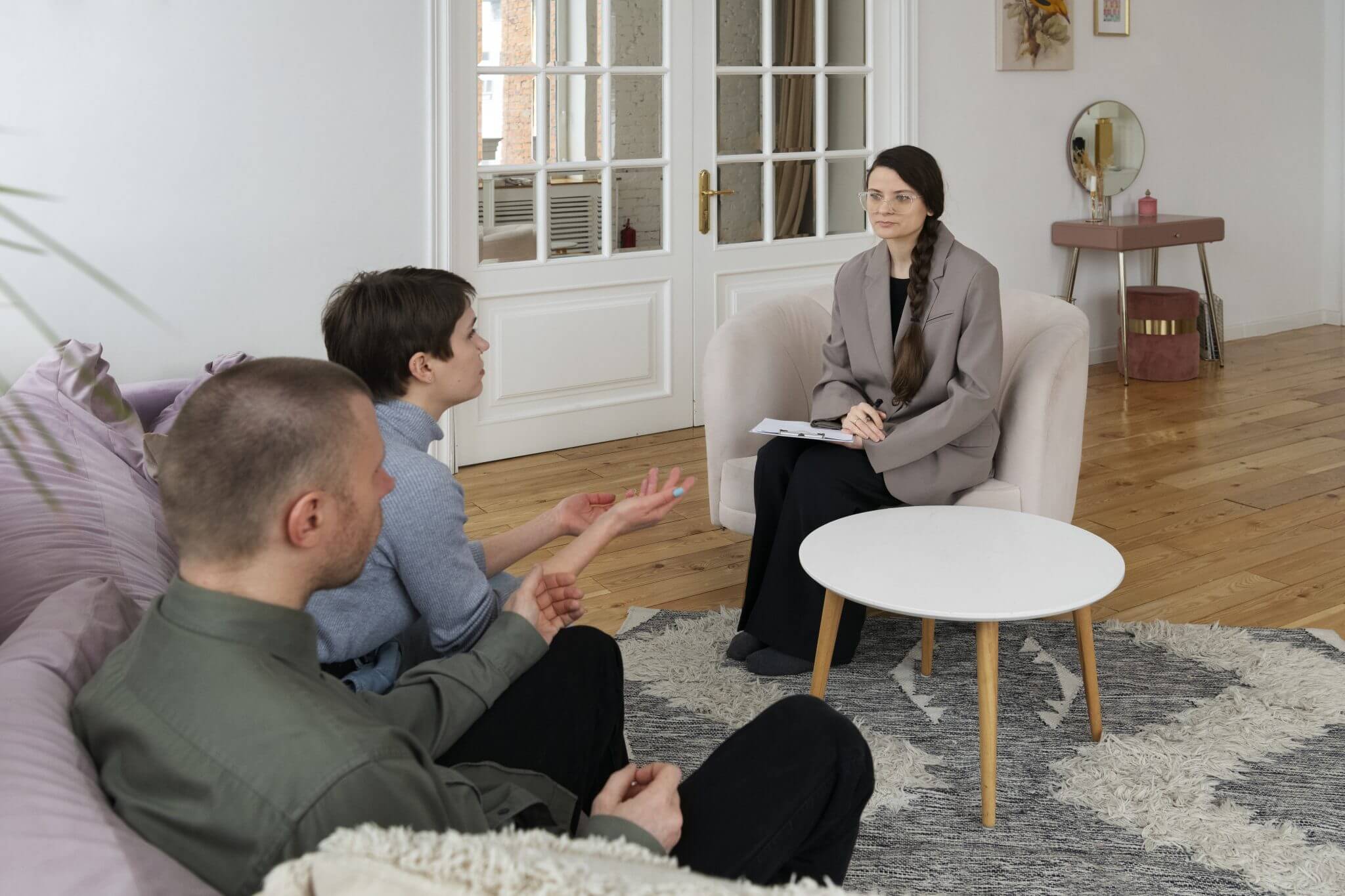Marriage Counselling in Singapore
Find a well-qualified marriage counsellor today!
At TYHO, we go above and beyond to ensure you receive the highest quality marriage therapy in Singapore.
- Singapore-based marriage counselling platform
- 98% of our clients would recommend TYHO
- Strict selection process with 10% acceptance rate for counsellors
- Online & In-person (various locations)
- 70+ vetted & multicultural professionals in Singapore
- Same-day & after-hours sessions (including weekends)








Our Marriage Counsellors in Singapore
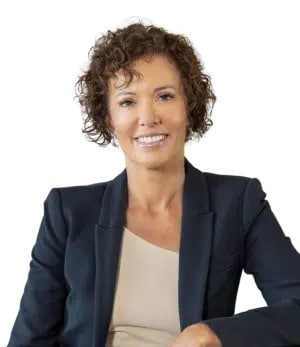
Zoe
Marriage Counsellor
Zoe is able to help couples facing issues like mood instability, communication gaps, life transitions, eating concerns or body image, and childhood trauma / ACE.
Starting from S$ 239.80 (w/ GST)

Aneel
Marriage Counsellor
- TYHO Room (Tanjong Pagar)
Aneel provides couples counselling for couples facing relationship issues, communication problems, infidelity, divorce and separation.
Starting from S$ 130.80 (w/GST)

Gowri
Marriage Counsellor
- Multiple Addresses
Gowri works with couples facing relationship issues, loneliness, communication problems, self-love, family relationships, and habit change.
Starting from S$ 130.80 (w/GST)

Andreas
Marriage Counsellor
Andreas can work with couples facing issues such as communication gaps, value mismatches, cultural adjustment, and marriage preparation.
Starting from S$ 130.80 (w/GST)

Homer
Marriage Counsellor
Homer can work with couples facing issues like separation, trust issues, communication problems, life transitions, and avoidant personality.
Starting from S$ 130.80 (w/GST)

Alva
Marriage Counsellor
- TYHO Counselling Centre (City Hall)
Alva helps couples facing mood instability, trauma, relationship issues, trust issues and communication problems.
Starting from S$ 174.40 (w/GST)

Alexandra
Marriage Counsellor
Alexandra is a couples counsellor who draws on her multicultural experiences to support couples facing relationship issues.
Starting from S$ 239.80 (w/ GST)

Punitha
Marriage Counsellor
- Tanjong Pagar
Punitha is an experienced couples counsellor who specialises in couples therapy, self-harm, addictions, trauma and PTSD, burnout & childhood issues.
Starting from S$ 174.40 (w/GST)

Daniela
Marriage Counsellor
- TYHO Counselling Centre (City Hall)
Daniela provides couples therapy for panic attacks, intrusive thoughts, forgiveness, phobias, and eating concerns or body image.
Starting from S$ 130.80 (w/GST)

Krish
Marriage Counsellor
Krish can help with trauma and PTSD, mental health, substance and behavioural addictions, LGBTQIA+, living with HIV and AIDS, and couple and family therapy.
Starting from S$ 130.80 (w/GST)

Glen
Marriage Counsellor
Glen is able to provide couples therapy for issues related to anxiety (incl social anxiety), life transitions, Borderline Personality Disorder (BPD), and Avoidant Personality.
Starting from S$ 130.80 (w/GST)

Avanti
Marriage Counsellor
- TYHO Room (Tanjong Pagar)
Avanti is able to help couples facing anxiety, depression, panic attacks, trust issues, and financial stress.
Starting from S$ 130.80 (w/GST)

Sheena
Marriage Counsellor
- TYHO Counselling Centre (City Hall)
Sheena can work with couples facing issues with mood instability, harassment or bullying, self-esteem and confidence, suicidal ideation, obsessive-compulsive behaviour.
Starting from S$ 130.80 (w/GST)

Pannavat
Marriage Counsellor
Pannavat can help couples with low moods or depression, mood instability, trauma, Attention Deficit Hyperactivity Disorder (ADHD), and PTSD.
Starting from S$ 130.80 (w/GST)

Glenn
Marriage Counsellor
- TYHO Room (City Hall)
Glenn works with couples facing anxiety, stress, depression, relationship issues, and LGBTQ-related issues.
Starting from S$ 174.40 (w/GST)

Shermaine
Marriage Counsellor
- TYHO Counselling Centre (City Hall)
Shermaine can help couples facing issues like low moods or depression, unemployment, communication problems, work-related stress or burnout, childhood trauma / ACE.
Starting from S$ 174.40 (w/GST)
Marriage Counselling in Singapore
What is marriage counselling?
Marriage counselling helps spouses understand and resolve issues in their relationship. The service can benefit people in a live-in relationship, those looking to marry in the future, and married couples.
Therapeutic Modalities for Marriage Counselling
During a session, the marriage counsellor may use clinical interventions to help spouses communicate better, negotiate differences, and settle differences more effectively.
For effective marriage counselling in Singapore, it is best to ensure that the counsellors are suitably qualified in various modalities such as
- The Gottman Method
- Emotionally Focused Therapy
- Psychodynamic Therapy
- Cognitive Behavioural Therapy
- Solution Focused Therapy
Importance of marriage counselling
Marriage therapy provides a safe and non-judgmental environment for both spouses. In this counselling space, the husband and/or wife can talk without fearing ridicule or negative perceptions.
Having a mediator to facilitate a healthy and productive conversation can go a long way in resolving conflicts or managing emotional responses. This is what marriage counsellors at TYHO are skilled at doing.
Moreover, the experts can analyse patterns in your behaviours and speech that may otherwise go unnoticed. As a result, you can work with the marriage counsellor to identify and change unhealthy patterns.
How Marriage Therapy May Help
TYHO offers marriage therapy to help spouses:
- Recognise the cause(s) of their conflicts
- Learn tools to improve their communication skills and assertiveness
- Develop conflict resolution skills
- Understand and manage financial issues effectively
- Learn how to resolve and stop disagreements or fights in a healthy way
- Gain insight into each other’s parenting styles
- Appreciate the other spouse’s personal contributions to the marriage
Note: If you’re a non-married couple looking for support, visit our couples counselling page.
TYHO Marriage Counselling Services in Singapore



Premarital Counselling
You can receive premarital counselling before you get married. Premarital counselling at TYHO can help you prepare for various transitions in your life.
The new phases can include moving in together before marriage, getting married, getting to know your partner’s family, and having children.
Therapeutic Modalities for Marriage Counselling
TYHO marriage counsellors in Singapore use several therapeutic approaches, such as motivational interviewing (eg affirming your feelings, asking open-ended questions, and reflective listening) to help you identify and prepare for conflicts that you may experience in the future.
Marriage Counsellor Can Help With Various Premarital Issues
Some of the other issues you can solve during premarital counselling include:
- Preparing for marriage
- Understanding the value of finance and money in your relationship
- Deciding on whether to have children
- Learning and identifying your parenting styles
- Developing healthy and positive relationships with extended families
- Understand each other's responsibilities in the marriage
- Accepting and respecting religious differences
- Building trust and connection
- Creating goals and aspirations for your married life (eg buying a house, shared milestones etc.)

Marital Counselling
If you want to seek marriage counselling, remember that you are taking a proactive step towards improving and maintaining the foundation of your relationship!
You can reach out to TYHO marriage counsellors if you are newly married, have been married for a long time, or if you intend to divorce and need professional help for the same. Our experts can help you and your spouse address any doubts and strengthen the foundation of your marriage.
We select our marital counsellors and set high standards for their qualifications, skills, and values. We assure you that all TYHO professionals are empathetic, understanding, and non-judgmental.
Issues Marriage Counsellors Can Help With
Below are some of the non-exhaustive list of issues TYHO marriage counsellors can help with:
- Communication issues
- Unhealthy patterns of interactions (eg including shifting blame and verbal abuse)
- Intimacy and emotional connection
- Anger management
- Infidelity
- Financial disagreements
- Sexual issues
- Adjusting to life transitions (eg becoming pregnant or having children)
- Unemployment
- Pregnancy-related issues
Marriage Counselling in Singapore: How to Get Started
We recommend marriage counselling for those who find that they:
- Feel uncomfortable communicating with their spouse about problems in the marriage
- Realise that arguments about the same few issues resurface repeatedly
- Experience a lack of intimacy or other sex-related problems with their spouse
- Don’t feel like they are of equal status in the marriage as their spouse
- Feel indifferent to problems in their marriage
- No longer enjoy spending quality time with their spouse
- Feel lonely even when they are around their spouse
- Dread going home to face their spouse
- Realise that they or their spouse are keeping secrets from each other
- Recognise elements of emotional or physical abuse in their marriage
Marriages often come with their own struggles and complications.
On one hand, spouses may have problems like parental stress or sex-related issues and may struggle to find any joy and spark in their dynamic.
On the other hand, people involved in a marriage can be happy together yet might also struggle to manage various conflicts, such as opening up to each other or finding it hard to balance family and relationship roles.
Such problems in a marriage can be complex and hard to navigate all alone. The relationship issues may be recursive as well.
TYHO marriage counsellors are skilled in several evidence-based techniques like the Gottman Method, Emotion-focused Couples Therapy (EFCT), etc.
Attending Marriage Counselling Sessions
We encourage you to seek help together with your spouse, even if only one of you wants professional help. Having a conversation with your spouse about the reasons for seeking help and doing so will help prevent several issues and conflicts from arising in the future.
When to Start Marriage Counselling
Please remember that your marriage does not have to be strained for you to seek marriage counselling. If your relationship challenges involve children or wider family dynamics, family counselling in Singapore can also be helpful, as it gives everyone a safe space to understand each other better.
If either you or your spouse feel like you might benefit from some professional help and guidance or may even need an objective and non-judgemental perspective on your relationship, you can book a marriage counselling session with TYHO.
TYHO marriage counsellors will act as an active intermediary between you and your spouse.
Our marriage counsellors are equipped with various skill sets like active listening, problem-solving abilities, empathy, and analytical thinking to help you during the most difficult moments in your marriage.
The following points are some of what the experts do during sessions:
Talking about your feelings with each other in a professional environment can help you express yourself and communicate honestly.
Please be assured that the marriage counsellors will avoid ‘taking sides’ and are skilled to identify and steer the conversation before it becomes unhealthy (eg hurting each other, fighting, blaming, shifting responsibilities etc.)
In other words, marriage counsellors will provide equal opportunities for you and your spouse to talk about your perspectives, feelings, concerns, and so on.
For example, marriage counsellors use approaches like the Gottmann Method to make sure that you and your spouse take away shared meaning and value from every session.
Using tools like love maps (eg answering a set of questions to know each other better and to create a strong foundation for your friendship and intimacy), marriage counsellors will prepare you to cope with conflicts and issues in a healthy way.
TYHO marriage counsellors practise active listening – a key element of the therapeutic process. The professionals listen actively during sessions initially to build rapport with you and your spouse.
Active listening can involve paying deep attention to your conversations, absorbing the information you share, and reflecting on your feelings and thoughts (through questions and body language) on you and your marriage.
Counsellors may also participate in the conversation by reiterating the issues to everyone in the therapy room to ensure that you and your spouse accurately understand the details.
Sometimes, certain conflicts in the marriage can arise due to individual problems like low self-esteem and loneliness. For example, having low self-esteem can lead to multiple dynamics. If you have low self-esteem, you may:
- Feel jealous and insecure in the marriage
- Question your worthiness to your spouse
- Feel like your spouse likes you out of pity or familiarity
- Fear that your spouse will leave you
Marriage counsellors may help you identify these issues that may not be immediately obvious.
Another similar example is if you seek marriage therapy due to fighting or frequently having a difference of opinion.
In that case, TYHO counsellors in Singapore may use solution-focused therapy (SFT) to analyse and help solve issues like lack of trust, anger management, communication difficulties, and other issues in the marriage dynamics.
An example of an effective tool in SFT is goal clarification. Your marriage therapist will ask you to imagine a future without your current marital problem. Then, with guidance and questioning, counsellors will help you implement your imagination in your current relationship.
The role of marriage counsellors is particularly important here as married couples can often find it difficult to identify their problems and instead tend to wind up in the same arguments repeatedly.
Interestingly, many married couples think that marriage counsellors are only around to help identify the problems.
A common question couples ask is, "How can a marriage counsellor actually help? If I earn less than my spouse and feel bad about it, going to therapy will not help increase my salary.”
Apprehensions and doubts like the above statement about marital therapy are valid and a good question. Money and marriage are interconnected in more ways than one, and various aspects like gender roles, marriage, family, and societal expectations can play a role in the conflict.
Although marriage counsellors cannot increase your salary, they can help you openly discuss your feelings with your spouse. The professional uses tools like Emotionally Focused Therapy (EFT) to help you:
- Focus on each other's strengths and weaknesses
- Express compassion and acceptance
- Explore your financial goals and dreams individually and as a married couple
- Your value when it comes to working on jobs and working at home (eg taking care of the house, children, or other family members)
- Find a middle ground on marriage expectations and roles (eg including who works and who takes care of the children).
Although finance issue is just one example, marriage counsellors will help you similarly in all aspects of your personal and married life.
You will also begin to see and understand your strengths as a married couple and what you have done right in the marriage.
Re-discovering your personal and shared strengths with your marriage counsellor can encourage and improve your confidence.

Marriage Counselling in Singapore: Who Should Consider It?
Anyone can seek marriage therapy, regardless of their status or type of marriage. Marriages are not perfect because two people with their own opinions, beliefs, ideas, and histories come together.
These differences may not always match with your spouse’s. In addition, other factors, like whether it’s a long-distance marriage, ethical non-monogamy, or gay marriage, may also influence the dynamics of the relationship.
In this section, we will share some details about how we support all types of marriages and how to identify if marriage counselling at TYHO is for you!

Seeking support online is usually the last thing on the minds of newlywed couples. In fact, most married couples view marriage counselling as a last resort and seek help only when they experience significant problems.
However, marriage Therapists at TYHO can help you prepare for marriage and set expectations to prevent future conflict.
As you enter your married life, it is important to know what marriage counselling can help you with, how to overcome challenges and disagreements, and how to manage and adapt to your changing roles and responsibilities.
If you are newlywed, below are some benefits you can expect out of the best marriage counselling at TYHO:
- Set expectations in an unbiased environment
- Learn how to overcome and cope with problems
- Build your communication style and maintain healthy interactions
- Discuss marriage finances and expenses in a guided conversation
- Understand yourself and your spouse better
Being in an LGBTQ+ marriage has its own set of experiences, joys, difficulties and pressure. TYHO marriage counsellors online or offline are empathetic and are here to help you understand and navigate the unique dynamics of a queer relationship.
Your counsellor will teach you how to identify feelings in yourself and your spouse and how to talk about your unique experiences as a queer person.
Creating a healthy and good counsellor-couple relationship is highly essential for the best marriage counselling. We encourage you to visit TYHO counsellors' profiles and find someone who can best help you with your problems.
TYHO marriage counsellors online can help with the issues below:
- Prejudice and discrimination
- Acceptance of your identity
- Social isolation and loneliness as a queer couple
- Interpersonal communication skills
You may experience unique challenges in your marriage if you live away from your spouse.
Some common issues you face may include jealousy, trust issues, sexual frustration, poor communication, and time management.
TYHO marriage counsellors can help you develop effective communication tools, regardless of the geographical distance.
Some of the issues our counsellors can help you with within a long-distance marriage include:
- Explore issues of jealousy, low self-esteem, and insecurity
- Infidelity
- Lack of clear communication
- Anger or frustration of living apart
- Feelings of loneliness
- Feelings of uneasiness about your spouse's commitment
- Lack of sexual or emotional intimacy
- Financial issues
If you are in an ethical non-monogamous marriage, you may face issues that are very different from a monogamous marriage.
Sometimes, people have an open marriage only for sexual needs. However, many also have one for romantic or emotional connections in addition to sexual needs.
If you are new to this concept or if you would like to discuss the possibility of an open marriage with your spouse, you can explore this in a professional therapeutic environment.
TYHO marriage counsellors are highly qualified in suitable therapeutic approaches such as emotionally focused therapy and narrative therapy with several years of experience.
If you are in an open marriage or would like to be in one, TYHO marriage experts can help you with:
- Creating rules and boundaries (including emotional, sexual and physical) that work for you and your spouse
- Communicating your needs and goals
- Talking about your situation with others, including family members
- Understanding your health-related concerns in an open marriage
- Managing your anxiety and uncertainty in your marriage
- Improving your self-esteem and confidence
Client Testimonials
Frequently Asked Questions
At TYHO, the cost of online marriage counselling starts from S$ 152.60 (w/GST). The standard charges can vary depending on package rates and your preferred medium (eg online, video and in-person).
Please note that all marriage therapy sessions at TYHO are one hour long.
We aim to provide you with quality marriage counselling services in Singapore at transparent and affordable prices.
There is no standard or universal answer to how long marriage counselling takes. The duration of marriage counselling in Singapore usually depends on several factors, such as the reason for seeking support, the dynamics of relationships, and the specific issues each person is facing.
You can discuss the length and duration of each session with your spouse and your marriage counsellor.
Some of the factors that result in the varying length of marriage therapy in Singapore include:
Nature of the issue(s)
As mentioned previously, married couples go for therapy together for many reasons.
On one hand, you may want to seek help only for a particular phase or point in your relationship. For example, the specific problem can include needing help to improve your communication skills and to express your feelings honestly.
On the other hand, you may want to work on some long-term issues that have affected your marriage. Long-term issues can include trust issues, not meeting each other’s emotional or physical needs, parental stress etc.
Furthermore, some people seek marriage counselling online to resolve complex issues like substance abuse, infidelity, or violence. In these situations, marriage counselling can extend for as long as a year as couples may take more time to understand each other and to work through their problems.
Commitment and frequency of sessions
You may have different schedules than your spouse and may find it challenging to commit to marriage therapy sessions regularly.
If you attend sessions less frequently, you may notice that the length of marriage counselling may last longer. That is completely okay. Therapy is not a quick fix, and you can take your own time to work through the issues.
Engagement across sessions
Many people are confused and overwhelmed with the idea of marriage therapy. Seeking marriage therapy makes people feel like something is wrong with them or their spouses.
However, that is far from the reality. You can seek marriage counselling for several reasons and still be happy with your spouse. The idea is to improve the foundation, understand each other better, and create a positive change for all involved.
The length of marriage counselling can depend on how ready you and your spouse feel to engage in the sessions and make proactive changes to your current lifestyle and habits.
If you struggle to open up to each other, your counsellor may recommend that you visit more frequently to ease into the therapy process. Conversely, if you show positive therapeutic engagement (eg being fully present and listening actively), you may notice changes and results more quickly.
However, please note that it is okay to take time to get used to marriage counselling. TYHO counsellors are all highly qualified and will help you along the way.
At TYHO, we offer the best marriage counselling in Singapore online and in person.
If you prefer in-person therapy, you can find the address of TYHO marriage counsellors in the blue box on their short profile.
Online counselling in Singapore is just as effective as in-person sessions. Some reasons why you can opt for online marriage counselling include:
Location: If you and your spouse live in different countries, online counselling may be more accessible for you. You can attend the session at a time that works for both of you.
Work: If you or your spouse travel to work daily and find it hard to make time for therapy, you can choose online marriage therapy. Attending online sessions would save you both time, expenses and hectic travelling routines.
Uncertainty with traditional therapy: If you feel nervous or uncertain about talking to a counsellor in person, you can try out online marriage counselling. Some TYHO counsellors offer both online and offline sessions, which can allow you to change your medium preferences anytime you prefer.
Comfort: You and your spouse can go for online marriage counselling if you feel more comfortable attending in a familiar environment.
The biggest difference between family and marriage counselling is the people involved. A family can involve multiple people, including parents, children, grandparents, relatives, friends, etc.
During family counselling, TYHO counsellors use approaches like Systemic Family Therapy to identify problems within larger systems like families, school, work, and community.
For example, your family counsellor in Singapore will consider how one family member functions and interacts as a partner (in a romantic relationship), parent, and new family member (daughter-in-law, son-in-law etc).
Your counsellor will also include various aspects of life, like cultural, religious, and political views, to improve your relationship with other family members.
Some of the issues TYHO family counsellors can help with include:
- Adjusting to a new life change (eg children graduating, moving to a new place)
- Relationship conflicts (such as parent-child conflicts or sibling rivalry)
- Communication issues
- Academic and school stress
- Work-related stress
- Family trauma (including verbal, emotional, and physical)
- Coping with chronic illness or a medical condition of a family member (eg cancer, stroke, autoimmune disease)
- Coping with a psychological disorder of a family member (eg eating disorders, borderline personality disorder, substance use disorder)
- Anticipatory grief (which is the fear of death or early grieving of a loved one before their death)
- Divorce
- Challenges that come with ageing
- Death and grief
You may be confused about what to do after attending marriage therapy.
Be assured that at TYHO, your marriage Therapist will help you understand what to expect after counselling and share their insights about what you can do individually and as a couple after therapy sessions.
However, here are some general tips and suggestions:
Reflect at your own pace
You may share many personal details during therapy. After the sessions, you can take time to process the entire conversation and reflect on the different issues and solutions presented.
Some activities to reflect on a therapy session include:
- Writing down your thoughts, feelings, goals, and outcomes
- Talking to your spouse about what you can do together to work on your marriage
- Recall important tools and techniques you learnt from your counsellor
Reflecting on your sessions will also help you become more aware of your feelings and prepare you for the next session without feeling overwhelmed.
Since you and your spouse will share a lot of information, both of you may feel drained. In these moments of emotional exhaustion, you can meditate or simply lie down for a few hours.
Do remember that emotional exhaustion does not mean that therapy didn’t help. Instead, it means that you have been actively working on yourself and changing how you live and interact with your spouse!
Be patient
Making significant changes in how you interact and live with your spouse can take time and patience. Being kind and compassionate to yourself and your spouse during therapy is important.
You may notice occasional hiccups, or your issues haven’t been fully resolved. That is normal because change is not a linear process.
As you engage more proactively in therapy and make changes, your marriage counsellor will help you and your spouse get back on track.
TYHO counsellors prioritise their clients with all sincerity. You can provide feedback to your counsellor about what is working and what is not.
Our marriage counsellors use an integrative approach and are skilled at drawing from several tools to tailor the therapy sessions for your situation.
Affirm effort and change
Another way to improve your marital relationship is to acknowledge and appreciate each other’s effort and progress constantly.
No matter how small – if you validate your spouse for the effort they are putting in, you will notice a gradual shift in your dynamics. Your encouragement will also reassure your spouse, especially when they are going through a tough time.
Similarly, take the time to validate and appreciate your efforts as well. Feel free to have a conversation with your spouse about exchanging affirmations.
TYHO marriage counsellors will also be with you every step of the way and constantly uplift you and your spouse for your efforts in the relationship.
Check-in and consider the next steps
Your marriage counsellors will regularly check in with you after a few sessions to track your progress. You can share your takeaways, feelings, concerns, and your next marriage goals during this time.
Your counsellor will also discuss the next steps with you and your spouse. If you have made significant progress in the relationship and feel comfortable with the changes, your counsellor may ask you to visit only once or twice a month to check-in.
Most importantly, you can discuss how long you want to seek counselling with your spouse and marriage counsellor. There are no rules and regulations about when to start or stop therapy.
Other Services We Offer
At TYHO, we offer counselling services for married couples who may also struggle with issues from other aspects of their life.
In the section below, you will find more information about the mental health issues we help with and our counselling services. Click on the link for each service to read more!


